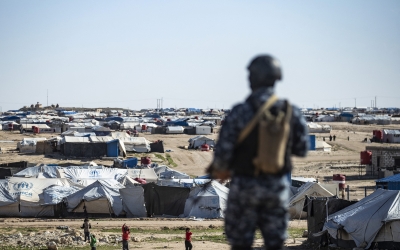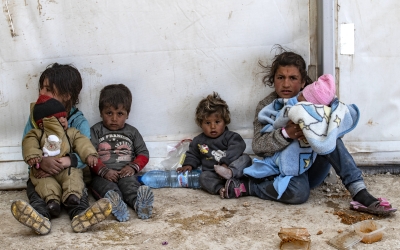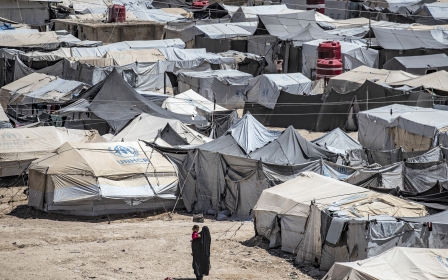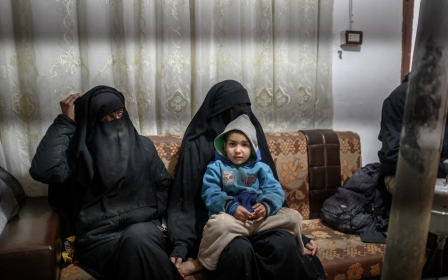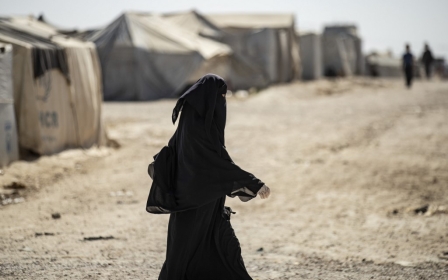Syria camps: Islamic State killed six people in al-Hol this month, says activist group
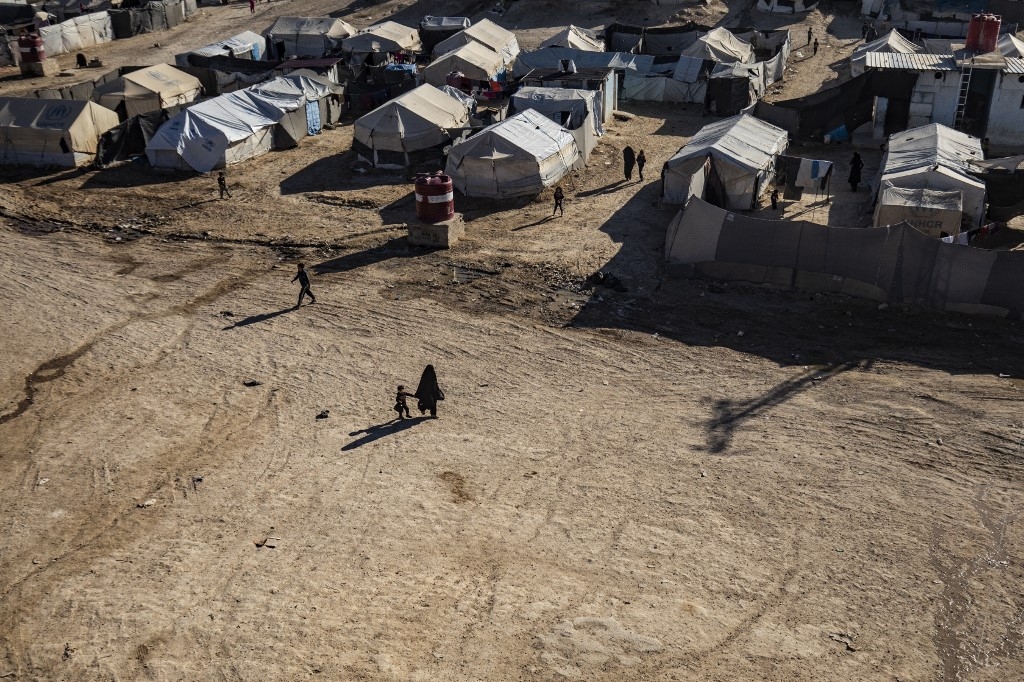
The Islamic State (IS) group killed six people, including four women, in Syria's al-Hol camp for displaced persons so far this month, a Britain-based activist group said on Sunday.
The camp, which is controlled by the Kurdish-led autonomous administration in northeastern Syria, houses about 62,000 displaced persons, including relatives of IS fighters.
About 93 percent are women and children, and about half come from Iraq.
According to the Syrian Observatory for Human Rights, which has a wide network of sources in Syria, "six assassinations were committed" in the camp by IS cells since the start of December.
The last victim to date was shot dead on Saturday.
The victims include three Iraqis - two men and one woman - as well as two Syrian women and one woman whose identity is unknown, the Observatory said.
Since the start of the year, the number of killings in the camp has been on the rise.
Some 86 people were killed, including 63 Iraqi refugees who resided in al-Hol, according to the monitor's toll.
'Chaos and insecurity'
Observatory head Rami Abdel Rahman warned that "chaos and insecurity persist within the camp", labelling it a "ticking time bomb" in comments to AFP.
In March, the Kurdish-led authorities launched a major operation in the camp during which they arrested 125 alleged IS members.
The UN has repeatedly warned of the deteriorating security conditions in al-Hol, which has also seen breakout attempts in recent months.
The overcrowded camp hosts about 10,000 foreign women, children and relatives of IS fighters.
Since the fall of IS's self-styled "caliphate" in March 2019, Syria's Kurds and the United Nations have repeatedly urged foreign countries to repatriate their nationals held in northeast Syria.
But most western countries have refused to repatriate their nationals from the camp.
Calls by the Kurdish administration for the formation of international tribunals for the fighters have also been overlooked.
Middle East Eye delivers independent and unrivalled coverage and analysis of the Middle East, North Africa and beyond. To learn more about republishing this content and the associated fees, please fill out this form. More about MEE can be found here.


